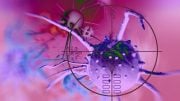A virus is a microscopic infectious agent that can replicate only inside the living cells of an organism. Viruses can infect all types of life forms, from animals and plants to microorganisms, including bacteria and archaea. Structurally, viruses consist of genetic material—either DNA or RNA—enclosed in a protective protein coat called a capsid, and sometimes a lipid envelope. They are uniquely distinguished by their simple, acellular organization and mode of reproduction, which involves hijacking the host cell’s machinery to produce new virus particles. This process often results in disease in the host organism. Viruses are responsible for a wide range of diseases, including the common cold, influenza, HIV/AIDS, and COVID-19. Despite their pathogenic nature, viruses also play roles in ecological and evolutionary processes, influencing gene transfer and genetic diversity.
Hot Topics
- July 26, 2024 | A New Star on the Horizon: Intern Discovers Unknown Pulsar
- July 25, 2024 | The Ocean Is Becoming Too Loud for Oysters
- July 25, 2024 | Dark Matter Defies Expectations: Surprising Speeds Revealed in Monumental Galaxy Cluster Collision
- July 25, 2024 | New Calculations Uncover a Vast Ocean Beneath Pluto’s Ice
- July 25, 2024 | Neuroscientists Have Pinpointed the Origins of Creativity in the Brain








